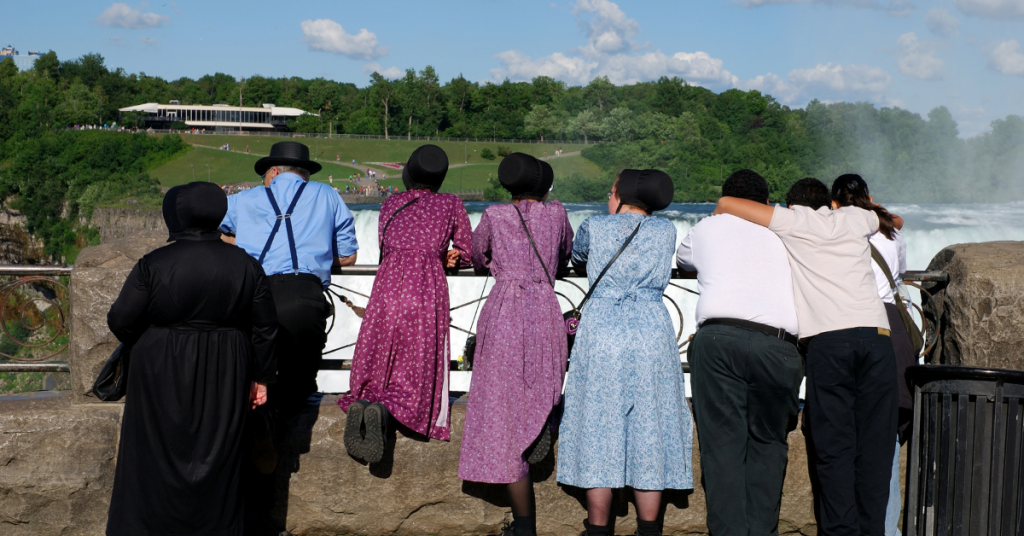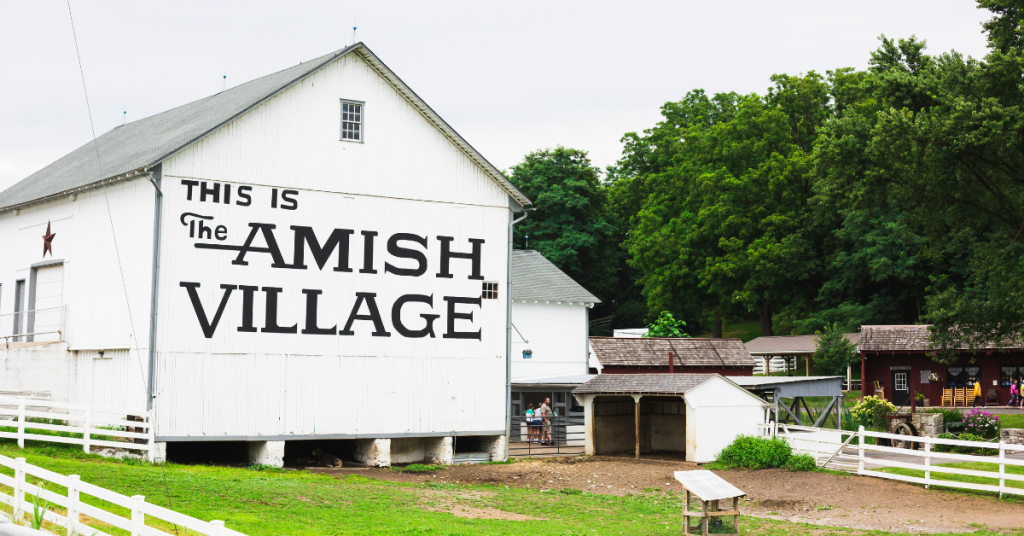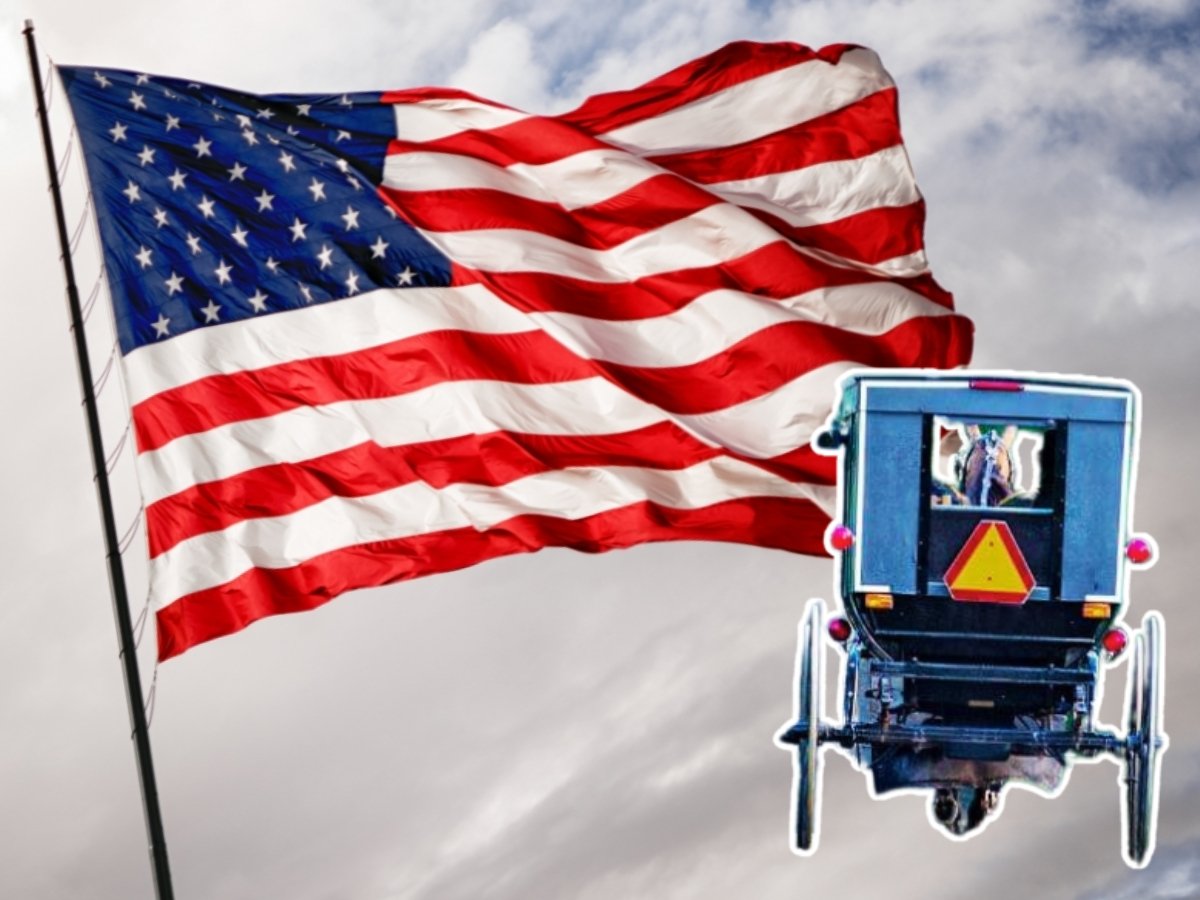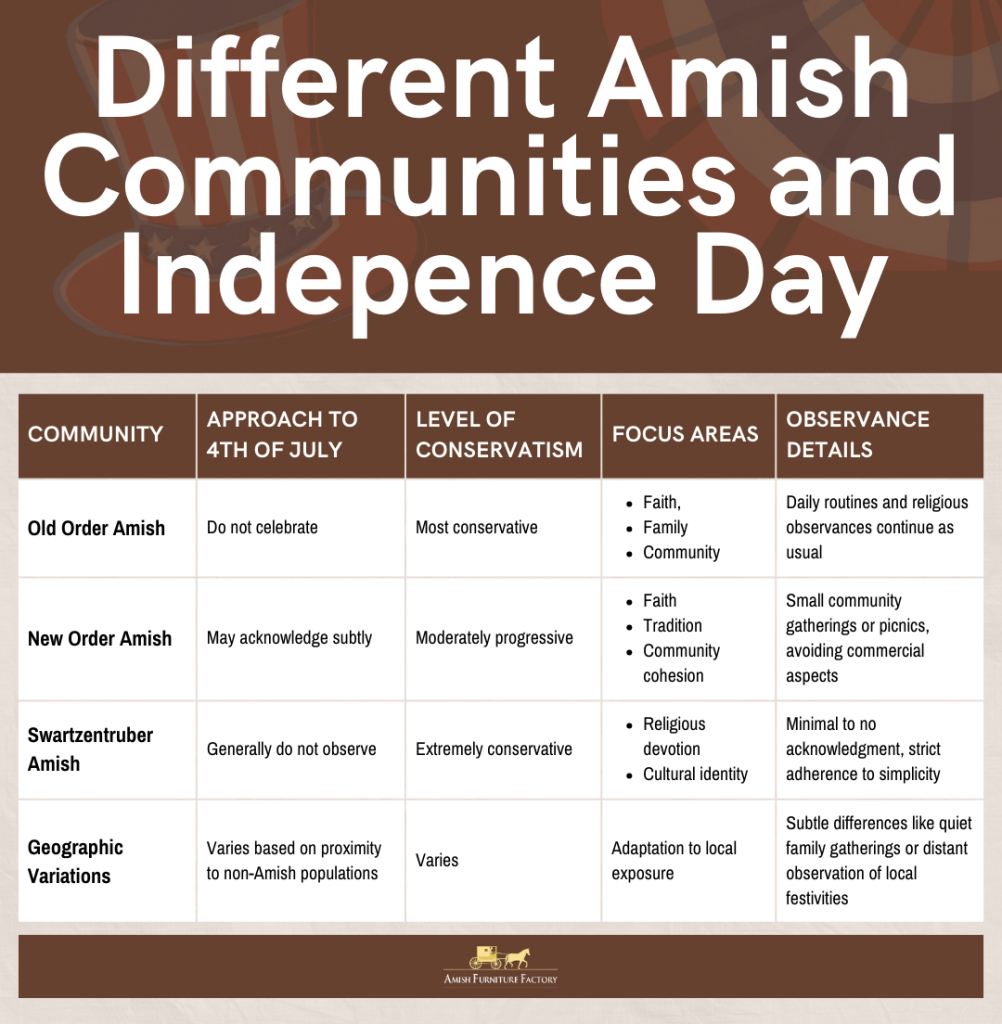
The Amish community is known for its unique way of life, often characterized by a simple, traditional lifestyle that diverges from mainstream American culture. This distinct approach extends to how they observe national holidays, including the 4th of July. While the Amish celebrate their own traditions and values, their observance of American Independence Day can be quite different from the typical festivities seen elsewhere.
Key Takeaways
- Amish communities generally do not celebrate the 4th of July in the traditional sense.
- The Amish prioritize religious faith and community over national holidays.
- Different Amish groups have varying practices and perspectives on national holidays.
- Respecting Amish traditions involves understanding their values and engaging thoughtfully.
Exploring how the Amish engage with this holiday provides insight into their cultural practices and values. Here’s a closer look at how the Amish approach the 4th of July and what it reveals about their way of life.
Do Amish Celebrate Independence Day?
The Amish community’s relationship with Independence Day is nuanced and varies among different groups. While many Amish do not participate in traditional celebrations, their reasons are deeply rooted in their faith and lifestyle.
Amish and the 4th of July: A Complex Relationship
The Amish practice nonconformity and separation from the world, which includes a degree of distance from nationalistic celebrations. Their pacifist beliefs, rooted in Anabaptist traditions, often conflict with the patriotic and militaristic themes of the 4th of July.
Despite not participating in conventional 4th of July activities like fireworks and parades, the Amish use the holiday as an opportunity for community and family gatherings. This aligns with their emphasis on family bonds and community strength.
Some Amish communities might observe the holiday in ways that fit their values, such as picnics or small gatherings, which are devoid of overt patriotic displays. This reflects their ability to adapt certain aspects of the holiday while maintaining cultural integrity.
Amish Life on the 4th of July
On the 4th of July, life in an Amish community continues much as it does on any other day. The daily routines of farming, household chores, and community activities remain unchanged. The Amish value consistency and see no need to alter their schedules for a national holiday. This continuity underscores their commitment to a way of life that is steady and focused on faith and family.
Community gatherings may still occur, but they are typically informal and not directly tied to the holiday. Amish children, like their parents, experience the 4th of July as just another day. While they may notice fireworks in the distance or hear stories of celebrations from non-Amish peers, their activities and interactions remain centered around their community and its values.
Reasons Behind Amish Practices

The Amish approach to Independence Day and other national holidays is shaped by their core beliefs and values. Understanding these reasons provides insight into their unique way of life.
Focus on Religious Faith Over National Identity
For the Amish, religious faith is the cornerstone of their identity. Their commitment to their faith often takes precedence over national allegiance or patriotic celebrations. They believe in living according to biblical principles, which guides their daily actions and interactions more than national traditions.
Commitment to a Simple, Non-Commercial Lifestyle
The Amish are dedicated to maintaining a simple, non-commercial lifestyle. They avoid the materialism and consumerism that often accompany national holidays like the 4th of July. By doing so, they preserve their values of humility, simplicity, and community, which they see as being at odds with the extravagance of typical holiday celebrations.
Maintaining Separation from Mainstream Society
A key tenet of Amish life is maintaining separation from mainstream society. This separation helps them uphold their values and way of life without outside influence. Avoiding participation in national holidays like Independence Day is one way they distinguish their community and reinforce their cultural and religious boundaries.
Perspectives from Different Amish Communities

Different Amish communities have varying practices and views regarding national holidays like the 4th of July, reflecting their unique traditions and beliefs.
Old Order Amish Practices
The Old Order Amish, being the most traditional and conservative, typically do not celebrate the 4th of July in any noticeable way. They maintain a simple lifestyle centered on faith, family, and community, avoiding modern conveniences and outside influences. Their routines and religious practices continue unchanged on national holidays.
New Order Amish Variations
The New Order Amish, while still committed to their faith and traditional lifestyle, may recognize the 4th of July with modest community gatherings or picnics. These events are simple and do not include commercial aspects like fireworks or parades, focusing instead on community and togetherness.
Swartzentruber Amish Views
The Swartzentruber Amish are among the most conservative and isolated groups, maintaining a strict lifestyle and minimal observance of the 4th of July. Their practices emphasize simplicity and separation from the outside world, with any acknowledgment of national holidays kept to a minimum.
Geographic Differences in Observance
Geographic location affects how Amish communities observe the 4th of July. Rural or isolated communities adhere strictly to traditional practices with no celebration, while those closer to non-Amish populations may have subtle variations, such as quiet family gatherings or observing local festivities from a distance.
Conclusion: Embracing Amish Simplicity and Tradition
The Amish community’s approach to the 4th of July is deeply rooted in their values of simplicity, faith, and community. Unlike the typical American celebrations of parades, fireworks, and barbecues, the Amish generally do not observe Independence Day in a conventional way. Their commitment to religious principles and a non-commercial lifestyle means that they often continue their daily routines without altering them for the holiday. For many Amish, the day passes like any other, with an emphasis on maintaining their traditional practices and avoiding overt patriotic displays.
FAQs
Do Amish people fly the American flag?
Amish people typically do not fly the American flag. Their focus on religious faith and community over national identity leads them to avoid overt displays of patriotism. While they respect the country they live in, they prioritize their spiritual commitments above national symbols.
Are there any Amish communities that do celebrate the 4th of July?
Some Amish communities may observe the 4th of July in a subdued manner, such as through quiet family gatherings or community meals. These observances are generally modest and do not include typical holiday festivities like fireworks or parades. The emphasis remains on community and simplicity.
How do Amish schools teach about American history?
Amish schools include American history in their curriculum, but the focus is often on historical events and values that align with their religious beliefs and way of life. The teachings emphasize respect for authority, the importance of community, and the values of hard work and simplicity. The approach is practical and straightforward, reflecting their overall educational philosophy.
Do Amish people vote in national elections?
Participation in national elections varies among Amish communities. Some Amish do vote, especially in local elections where the outcomes have a direct impact on their daily lives. However, many choose not to participate in national elections, preferring to remain separate from political processes that they feel are outside the realm of their religious and community-focused life.
What other national holidays do Amish people observe?
The Amish generally do not observe national holidays in the same way that mainstream society does. They focus on religious holidays such as Christmas and Easter, which hold significant spiritual meaning for them. Any acknowledgment of national holidays tends to be quiet and aligned with their values of simplicity and faith.

